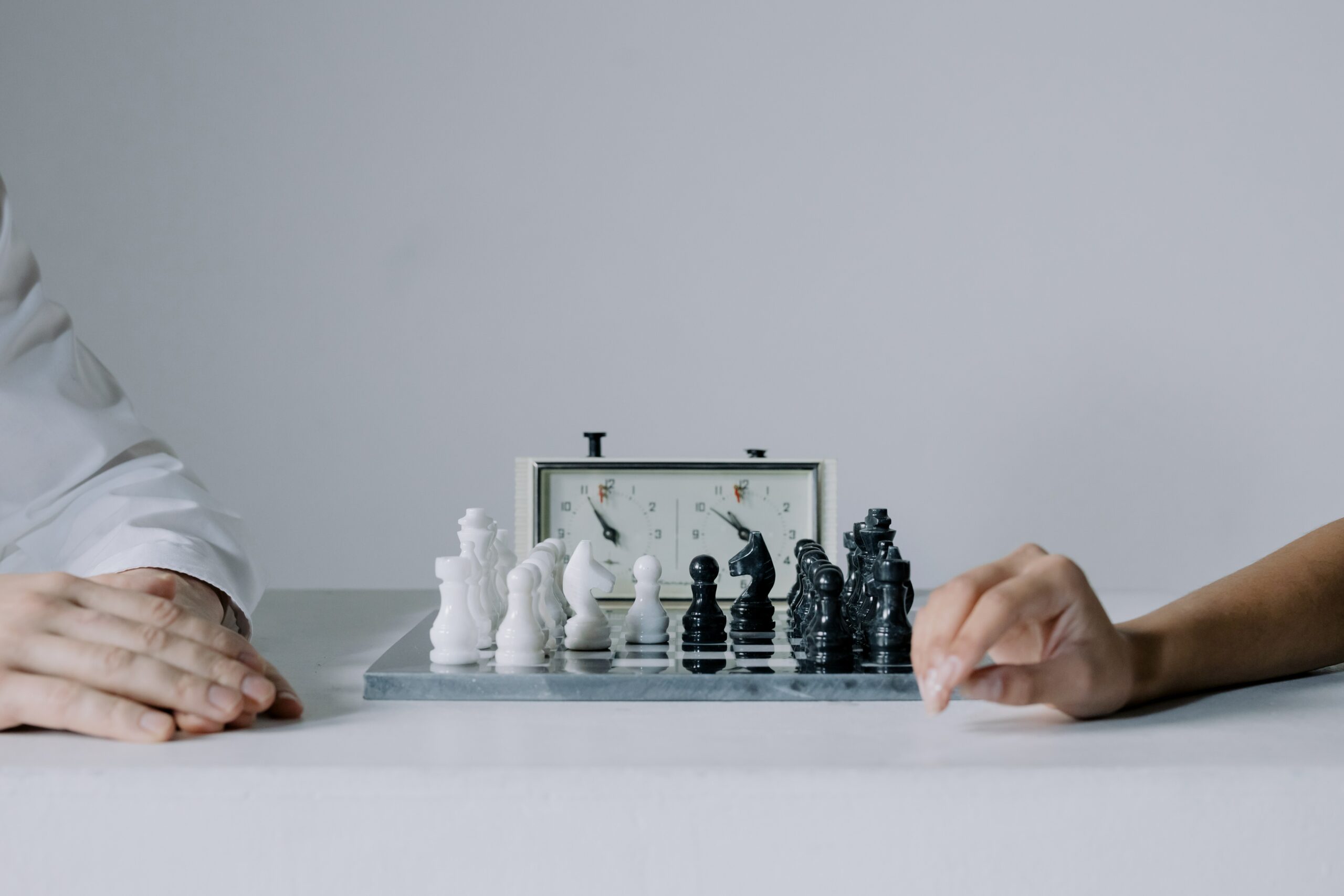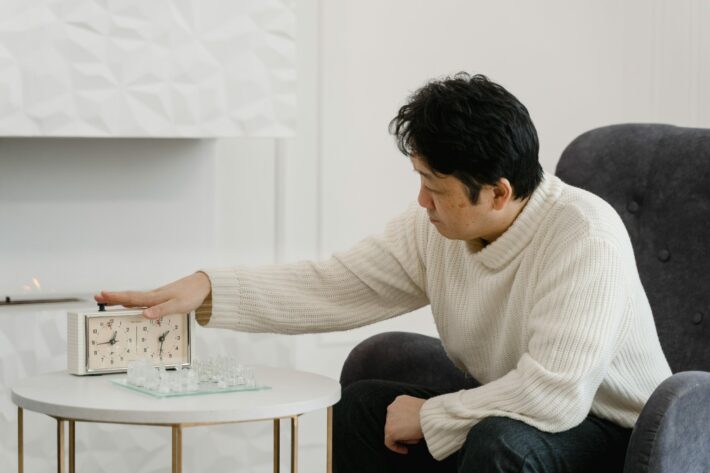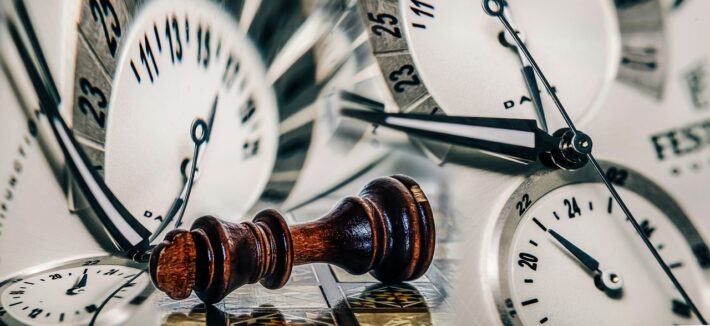Are you ready to take your chess game to the next level? If you’re a chess enthusiast looking to enhance your skills and make significant strides in strategic thinking, decision-making, and time management, then incorporating a chess timer into your practice games is the secret weapon you’ve been missing. Chess timers are not just gadgets used in competitive matches; they hold incredible potential to transform your training sessions and elevate your performance.
In the course of this discussion, we will explore the numerous benefits of using a chess timer and how it can unlock your true potential on the chessboard. So, get ready to discover the power of the chess timer and revolutionize your approach to the game!
How Does a Chess Timer Improve Your Game?
Chess timers are not mere tools for keeping track of time; they have a profound impact on your game. One of the primary ways a chess timer enhances your skills is by improving your time management abilities. In chess, time is a valuable resource, and using a timer helps you allocate it effectively.
With each move, you become more aware of the ticking clock, encouraging you to make decisions efficiently and avoid time-consuming pitfalls. By honing your time management skills, you’ll be able to make better use of the available time and avoid being overwhelmed by fast-paced games.
Why Should Every Chess Player Incorporate a Timer in Practice Games?
Incorporating a timer in practice games is essential for every chess player, regardless of their skill level. It introduces an element of pressure and urgency, mimicking real game scenarios. This simulation helps players develop the ability to think and act swiftly, making accurate decisions under pressure.
Moreover, chess timers encourage a competitive mindset, pushing players to challenge themselves and strive for improvement. By incorporating a timer in your practice games, you create a dynamic and engaging training environment that elevates your skills and prepares you for competitive play.
| Benefits | Description | |
|---|---|---|
| Time Management | Improved time allocation for each move | Using a timer helps players allocate time effectively, preventing them from spending too much time on a single move and improving overall time management skills. |
| Focus and Concentration | Enhanced ability to concentrate | Playing with a timer requires focused attention, helping players develop stronger concentration skills, which are crucial for making accurate and strategic decisions. |
| Decision Making | Improved decision-making under pressure | Chess timers simulate time constraints similar to real game situations, enabling players to practice making well-thought-out decisions within limited time frames. |
| Game Efficiency | Faster and more efficient gameplay | Incorporating a timer encourages players to think and act faster, leading to improved efficiency in executing moves and strategies during practice games. |
| Psychological Resilience | Strengthened mental resilience | Playing with a timer introduces a sense of urgency and pressure, helping players develop mental resilience and adaptability, which are vital traits in competitive chess. |
Are Chess Timers Essential for Developing Strategic Thinking?

Chess is a game of strategic thinking, and utilizing a timer is an excellent way to enhance this crucial skill. When the clock is ticking, you are compelled to think strategically within a limited timeframe.
The pressure of the timer forces you to evaluate different moves, anticipate your opponent’s responses, and develop long-term plans. Regular practice with a timer trains your mind to think strategically even when time is against you, ultimately strengthening your ability to formulate effective strategies in real games.
Can a Chess Timer Help You Make Better Decisions Under Pressure?
Making sound decisions under pressure is a skill every chess player aspires to master. The beauty of a chess timer lies in its ability to recreate this pressure during practice games. When faced with a ticking clock, you must rely on your intuition, knowledge, and experience to make quick and informed decisions.
Over time, the constant exposure to time pressure sharpens your decision-making abilities, allowing you to stay calm, composed, and confident in high-stakes situations. The more you practice with a timer, the better equipped you become at making decisive moves under pressure.
What Role Does Time Management Play in Chess?
Time management plays a pivotal role in chess, as it directly impacts your ability to make thoughtful moves within a limited timeframe. The disciplined use of time allows you to thoroughly analyze positions, consider different possibilities, and select the most promising moves.
With a chess timer, you are compelled to strike a balance between careful analysis and efficient decision-making. By improving your time management skills, you become a more formidable opponent, capable of maximizing your chances of victory by making the most of the time available.
How Does a Chess Timer Enhance Your Focus and Concentration?
Chess requires intense concentration and unwavering focus. Using a chess timer adds an extra layer of challenge that hones your concentration skills. The countdown of the timer demands your undivided attention, pushing distractions aside and immersing you fully in the game.
As you become accustomed to playing with a timer, your ability to maintain focus for extended periods improves. This newfound focus translates to better moves, a heightened awareness of the board, and an overall improvement in your gameplay.
Is Using a Chess Timer Beneficial for Analyzing Your Moves?
The use of a chess timer during practice games significantly aids in analyzing your moves. By setting time limits for each move, you train yourself to think more efficiently and quickly evaluate the consequences of different moves.
This practice helps you develop analytical skills that are invaluable in analyzing complex positions during real games. The timer encourages you to evaluate candidate moves, assess risks and rewards, and gain a deeper understanding of the positional nuances on the board.
Can a Chess Timer Speed Up Your Calculation Skills?

Chess timers are excellent tools for accelerating your calculation skills. When you’re racing against the clock, you learn to calculate faster and more accurately. The time pressure compels you to think ahead, anticipate various possibilities, and calculate potential outcomes swiftly.
This practice not only enhances your calculation skills but also trains you to make precise calculations even in time-limited situations. With regular timer-based practice, you’ll find yourself making more precise calculations and executing tactical maneuvers with increased speed.
How Does a Chess Timer Foster a Competitive Environment?
Chess timers naturally foster a competitive environment, driving players to push their limits and strive for excellence. The timer introduces a sense of urgency and rivalry, amplifying the excitement and intensity of each move.
As you compete against the clock, your competitive spirit ignites, and you become more driven to outsmart your opponent within the given time frame. This competitive atmosphere fuels your desire to improve, propelling you to study the game, learn new strategies, and continuously enhance your skills.
Are There Psychological Benefits of Playing Chess with a Timer?
Playing chess with a timer offers several psychological benefits. Firstly, it helps develop patience and resilience. The time pressure challenges your patience as you learn to make decisions swiftly without compromising accuracy.
Additionally, the timer introduces an element of stress, which helps you build resilience and handle pressure effectively. Over time, you become more comfortable and composed in high-pressure situations, both on and off the chessboard.
Does Using a Chess Timer Aid in Developing Patience and Resilience?
Chess timers serve as valuable tools for developing patience and resilience. In a timed game, you are forced to make choices promptly while maintaining composure. This practice cultivates patience by training you to remain focused and patient even when faced with time constraints.
Moreover, the pressure exerted by the timer helps build resilience as you learn to adapt to challenging situations and maintain a clear mindset. The combination of patience and resilience enhances your overall performance and prepares you to face any chess-related obstacle with confidence.
Can a Chess Timer Improve Your Game Efficiency?
Incorporating a chess timer into your practice games is a surefire way to improve game efficiency. The time pressure compels you to think faster, evaluate positions swiftly, and execute moves efficiently.
By practicing with a timer, you become adept at optimizing your decision-making process, avoiding unnecessary delays, and utilizing your time effectively. As your game efficiency improves, you gain a competitive edge, ensuring that you can make the most of the time available and seize opportunities to outmaneuver your opponents.
How Does a Chess Timer Encourage Better Game Planning?

Chess timers play a crucial role in promoting better game planning. With a limited amount of time for each move, you are compelled to plan strategically.
The pressure exerted by the timer pushes you to anticipate your opponent’s moves, consider various possibilities, and formulate effective plans. This practice of planning within time constraints strengthens your ability to think strategically and prepares you to tackle complex positions with a well-thought-out approach.
Are There Training Techniques That Combine Chess Timers and Exercises?
Indeed, various training techniques combine chess timers and exercises to maximize skill development. One popular technique is the “Blitz Chess” method, where players engage in fast-paced games with a limited amount of time per move. This technique sharpens decision-making abilities and helps players think quickly under pressure.
Additionally, “Chess Tactics Drills” can be conducted using a timer, where players solve tactical puzzles within a specified timeframe. This technique enhances calculation skills, pattern recognition, and decision-making accuracy.
Can a Chess Timer Help You Identify and Overcome Time-Related Weaknesses?
By incorporating a chess timer into your practice games, you can identify and overcome time-related weaknesses. Observing your performance under time pressure allows you to pinpoint areas where you tend to spend excessive time or make hasty decisions.
Once identified, you can focus on improving these specific aspects through targeted practice sessions. By consistently practicing with a timer, you’ll gradually develop the ability to make efficient decisions within the given time frame, effectively overcoming time-related weaknesses and becoming a more well-rounded player.
End Note: Mastering the Art of Time Management on the Chessboard
Ultimately, the incorporation of a chess timer in your practice games can revolutionize your chess skills and propel you to new heights. The benefits of using a timer extend beyond time management, enhancing your focus, concentration, decision-making, and overall game efficiency.
Additionally, playing with a timer fosters a competitive environment, cultivates patience and resilience, and strengthens your strategic thinking abilities. With the right training techniques and consistent practice, you can harness the power of the chess timer to identify and overcome time-related weaknesses, becoming a formidable opponent capable of making precise moves within the constraints of time. So, embrace the chess timer, embrace the challenge, and unlock your full potential on the chessboard.




